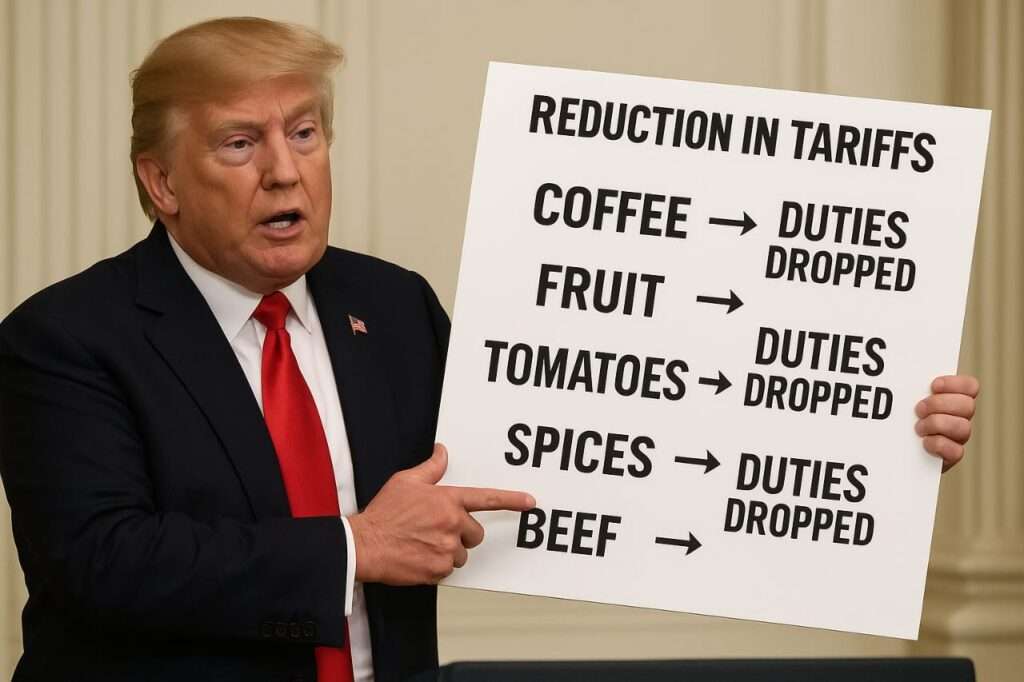In a significant reversal of his long-standing protectionist trade stance, President Donald Trump has rolled back tariffs on a wide range of imported food products including coffee, beef, tropical fruits, tea, spices and tomatoes as American consumers grapple with record grocery prices. The move marks one of the most visible policy retreats of his current term, signalling pressure from both economic data and political setbacks.
For months, U.S. households have faced relentless inflation in essential food items, with beef and coffee prices showing double-digit year-on-year spikes. Economists have repeatedly argued that Trump’s earlier tariff hikes not only disrupted supply chains but also amplified retail inflation by raising the landed cost of essential imports. The rollback, effective retroactively, appears to be an attempt to stabilise food prices ahead of the crucial holiday consumption cycle.
The decision also carries political undertones. Recent electoral setbacks in multiple states highlighted rising voter dissatisfaction over affordability, forcing the administration to recalibrate its tariff-centric trade strategy. Critics argue that the retreat amounts to an admission that protectionism, when applied indiscriminately, can boomerang on domestic consumers.
Trade partners such as India, Latin America and Africa stand to benefit, with lower duties likely boosting exports of tea, spices, fruit and agri-products. However, analysts note that tariff cuts alone cannot offset the structural drivers of U.S. inflation including labour shortages, transport bottlenecks and rising energy costs.
Trump’s U-turn underscores a broader shift: economic pragmatism is finally superseding tariff-driven nationalism, albeit under mounting consumer and political pressure.

